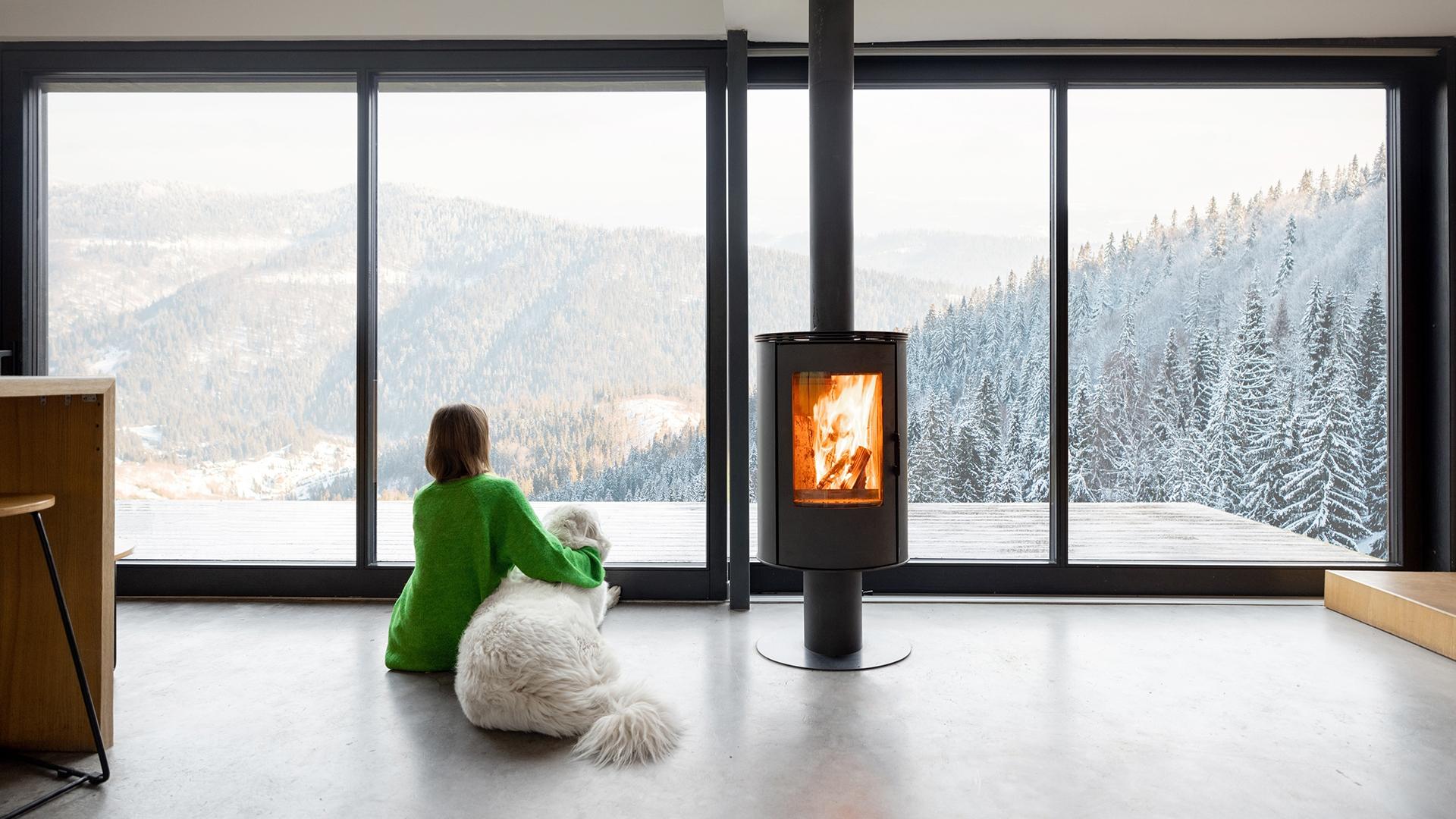Stoves and fireplaces

You’d love to have a stove or fireplace in your home, but you don’t know how to choose. Here’s a brief overview of your options, along with some helpful advice.
Check before buying
Regardless of your choice, be sure to inquire about installation standards and your municipality’s regulations on residential stoves and fireplaces. Then notify your insurance company about your plans. Determine the extent of the area you want to heat and how much you’re ready to spend. Lastly, an essential question, are you looking for heat or atmosphere?
Stove or fireplace: what’s the difference?
The stove is a heating apparatus on legs, with a very visible exhaust pipe. There are three main categories of stove: wood-, gas- and pellet-burning. The stove is used as a backup system and can function all winter long.
Wood-burning stove or fireplace
This is the most popular choice. For creating atmosphere in the home it wins hands-down, with the added bonus of giving off the lovely smell of wood. On the other hand, it requires a good-sized space in a room and regular cleaning, as well as a chimney to evacuate gases. For it to work efficiently, you need to use dry wood (cut and split in winter and properly stored throughout the summer) no larger than 15cm (6in) in diameter and 35 to 40cm (14 to 16in) in length.
Which types of wood should I choose for my stove or fireplace?
Dense hardwoods like maple and oak (listed in descending order of calorific value) provide the best choice, as they produce long-lasting fires and embers:
Rock elm
Hickory and red oak
Sugar maple
Beech and yellow birch
Ash (local use) and slippery elm
A number of less energy-efficient woods can make excellent firewood during spring and fall:
Red maple and white birch
Silver maple
Poplar and linden
Softwoods such as fir and spruce are to be avoided.
Natural gas or propane stove or fireplace
The second choice among consumers, they are economical, light quickly, and (obviously) eliminate the need to store firewood. Most new models do not require a chimney, and the evacuation vent is powered by electricity. They produce more heat than wood burning models.
Pellet stove or fireplace
Pellets are a byproduct of wood. Less polluting and “cleaner” than wood, this type of stove and fireplace emit regular heat. Some appliances have an automatic feeding system that can keep the stove fuelled with pellets from 13 to 24 hours.
Certifications needed
Whichever option you choose, be sure that the appliance bears the seal of a recognized laboratory or association: the Underwriter’s Laboratories of Canada (ULC) and Warnock-Hersey (WH). Gas appliances must be recognized by the Canadian Gas Association. Lastly, in addition to economy and efficiency concerns, look for a model that has been certified by the EPA (Environmental Protection Agency).
Advise your insurer
It is important that you tell your insurer that you are installing a backup heating appliance. Generally, this should not have much impact on your home insurance premium. However, there may be restrictions on the amount of wood that can be stored inside your home.
If you file a claim for a loss related to your appliance and you have not informed your insurer that you have it in your home, your compensation must be reduced. For example, if your premium should have increased by 10% because of your new stove or fireplace, your settlement could be reduced by the same proportion.

Benefit from personalized advice
Do you have questions about your home, need specific information, or are you looking for referrals to find an Approved Supplier?